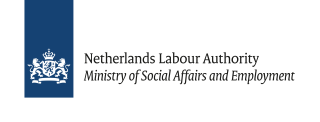Certification systems are intended to ensure that high-risk work is done safely. In certain professions, workers are currently required to have a personal certificate. There have been some changes to that. For a number of professions, the requirement to have a personal certificate has been or will be converted into a requirement to get registered personally with a Registration Body. The requirements that someone in those professions must meet remain the same.
Personal certificates
- Certificates are issued by a conformity assessment body (CAB). Each CAB is a private company designated for that task by the Netherlands Labour Authority on behalf of the Minister of Social Affairs and Employment.
- The Netherlands Labour Authority oversees the certification system and monitors its adequacy. If necessary, improvements are made with and by stakeholders.
- In addition, the Netherlands Labour Authority supervises the CABs. Should a CAB fail to function properly, the Netherlands Labour Authority may impose a measure, including in extreme cases revocation of the designation.
Personal registrations
With personal registrations, things run differently compared to personal certificates:
- In the case of personal registrations, CABs do not play a role, as workers are registered with a Registration Body (RB). This is laid down by law in the Working Conditions Decree (Arbeidsomstandighedenbesluit), which states that the minister registers and ensures the establishment of registers.
- In practice, the minister bestows this power on an RB (which is usually a foundation). The minister enters into an agreement with the relevant RB and remains responsible for the registers of persons.
- In principle, with personal registration, there is one RB per field of work. This is in contrast to personal certification, where several CABs may be designated to a field of work.
To whom do the changes apply?
For crane operators, the certification requirement was transformed into mandatory personal registration from 1 January 2020. For this, see the website Stichting Toezicht Certificatie Verticaal Transport Register Administratie (Dutch).
For persons working with explosive substances and/or detecting explosive remnants of war, the certification requirement was converted into a mandatory personal registration from 1 January 2021. See the website Stichting Veilig Omgaan met Explosieve Stoffen (Dutch) for more information.
The switch from certification to registration will also follow for other professions. These are expected to include tanker ship gas experts, fireworks operators and processors, diver doctors and those involved in diving work.
How do the changes affect the Netherlands Labour Authority?
- The Netherlands Labour Authority continues to supervise personal registration systems, just as it supervises certification systems. Both CABs and RBs must report annually to the Netherlands Labour Authority.
- The Netherlands Labour Authority identifies risks and can intervene to improve the functioning of the system. This is not specifically about the CAB or the RB, but about the overall functioning, for example, of the crane operator registration system.
- However, the Netherlands Labour Authority does not supervise the RBs and, therefore, cannot impose a measure if an RB is not functioning properly. However, the Netherlands Labour Authority can pass on signals to the Ministry of Social Affairs and Employment and, at the minister's request, conduct an investigation at an RB. The Netherlands Labour Authority then passes on the findings to the Ministry of Social Affairs and Employment, which may have implications for the RB.
Why is registration mandatory?
From 1 January 2018, statutory certification systems are required to seek accreditation by the Dutch Accreditation Council. This is subject to a fee, which is payable by the certificate holder. For professionals in small sectors, the fee is relatively high; they need a cheaper alternative. However, it is important to maintain safety and quality. The requirements on the persons in the profession remain unchanged. A statutory registration requirement meets both objectives: it reduces costs while safeguarding quality. In short, both personal certificates and personal registrations are reliable documents that ensure safe working practices.
Questions about designation?
Do you have a question about a national designation of your company as a certification or registration body? Or a question about a European designation of your company as a notified body in NANDO? If so, please contact the Netherlands Labour Authority by email: nlapostbusaanwijzingcbi@minszw.nl.
